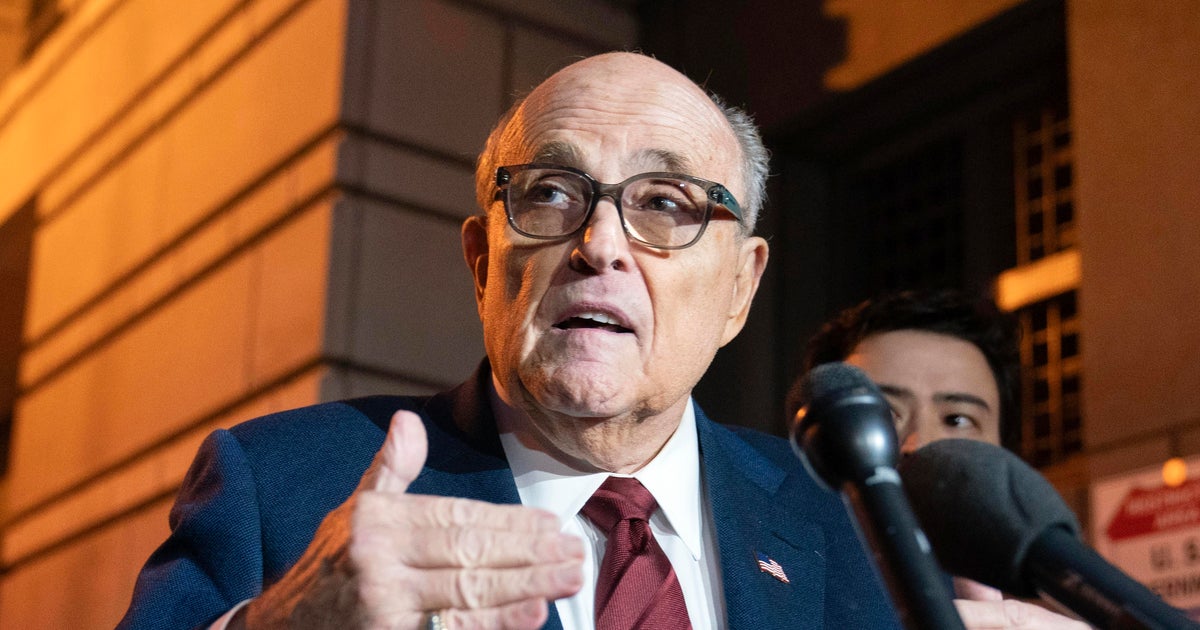Supreme Court justices avoid saying F-word at heart of trademark case
- Justice Samuel Alito called it "the word your client wants to use."
- The artist behind the "FUCT" brand, Erik Brunetti, says this part of the trademark law is unconstitutional.
- Despite the justices' discomfort, an earlier High Court decision could lead them to rule in Brunetti's favor.
Washington - None of the Supreme Court's justices wanted to say the four-letter word. The high court was discussing a trademark case Monday involving a Los Angeles-based fashion brand "FUCT." But the justices did some verbal gymnastics to get through about an hour of arguments without saying the brand's name.
Chief Justice John Roberts described it as the "vulgar word at the heart of the case." Justice Samuel Alito called it "the word your client wants to use." And Justice Stephen Breyer called it "the word at issue."
The case has to do with a portion of federal law that says officials should not register trademarks that are "scandalous" or "immoral." Officials have refused to register the brand's name as a result.
But the artist behind the brand, Erik Brunetti, argues that portion of law should be struck down as an unconstitutional restriction on speech. The government is defending the century-old provision, arguing it encourages trademarks that are appropriate for all audiences. Lawyer Malcolm Stewart, who was arguing for the Trump administration, said the law isn't a restriction on speech but rather the government declining to promote certain speech.
Stewart also went to great lengths not to say the brand's name, calling it "the equivalent of the profane past participle form of a well-known word of profanity and perhaps the paradigmatic word of profanity in our language."
Can use, but can't trademark
Brunetti and others like him who are denied trademark registration under the "scandalous" provision can still use the words they wanted to register for their business, nonprofit or brand, a point some justices underscored. They just don't get the benefits that come with registering a trademark. For Brunetti, that would largely mean a better ability to go after counterfeiters who knock off his designs.
Brunetti's lawyer, John R. Sommer, got the closest to saying the brand's name, using the phrase "the F word" and noting his client's brand "isn't exactly" a "dirty" word. "Oh, come on. You know, come on," responded Alito, adding: "Be serious. We know...what he's trying to say."
It wasn't clear from arguments how the case might ultimately come out, but Brunetti would seem to have a strong case. Two years ago, the justices unanimously invalidated a related provision of federal law that told officials not to register disparaging trademarks. In that case, an Asian-American rock band sued after the government refused to register its band name, "The Slants," because it was seen as offensive to Asians.
Inconsistent decisions
During Monday's argument, some of the justices seemed troubled by what they suggested are inconsistent decisions by the U.S. Patent and Trademark Office about what gets tagged as scandalous or immoral. Justice Ruth Bader Ginsburg noted that the office has refused to register some trademarks both by saying they are scandalous and, ironically, too confusingly similar to something that is already registered. For example, the office refused to register "FUK!T" for being scandalous and immoral but also confusingly similar to the already registered "PHUKIT."
Justice Neil Gorsuch said, "There are shocking numbers of ones granted and ones refused" that "do look remarkably similar." Gorsuch suggested that the outcomes in such cases were as arbitrary as the "flip of a coin."
"I don't want to go through the examples," he said to laughter. "I really don't want to do that."
The case is 18-302, Iancu v. Brunetti.



